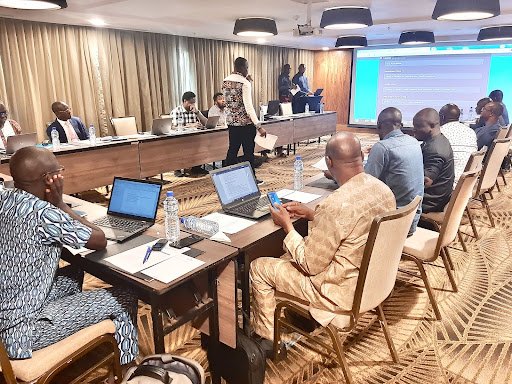By Friday Daniel, Chinedu Anarado and Munachi Okoro
The public health space has relied on platforms from multilateral agencies and nonprofits to plan interventions. Platforms such as the Humanitarian OpenStreetMap, the WHO Integrated Supportive Supervision (ISS), and electronic surveillance (e-SURV) database, GRID3, and the Global Health mapping platforms were some of the only sources of information on health facility data. But these data sources can be inadequate, rarely reflect the realities on the ground and do not have the imprimatur of relevant government authorities. Equally, Ministries of Health in most WHO countries lack the capacity to curate and manage their health facility data, leaving a critical information gap in the health planning process.
The WHO conceived the Geolocated Health Facility Data initiative (GHFDi) project as a public good to enhance access to information on the status, location and functionality of health facilities across participating WHO member countries. The overall idea is to deepen capacities in each country to manage this data, ensure its openness and availability in planning public health interventions.
The GHFD project requires participating countries to grow their capacity to curate and manage their health facility data. But first, an assessment of the existing health facility list or registry is essential. This is expected to provide insight into the efforts required to achieve an ideal scenario which is a database of health facility information, with name, location, unique identifier, geographic coordinates and hosted in an open source platform. Countries may then choose to share this information with a global database managed by the WHO, and then invest in an ongoing process to grow their capacity to ensure the information is updated periodically.
eHealth Africa is one of the implementing partners of the AFRO region responsible for implementing this project in the Republic of Togo. On the 9th of August 2022, an introductory meeting was held at the headquarters of the Ministry of Health in Togo. This meeting was organized by eHealth Africa in partnership with the Ministry of Health and the WHO country office.
It brought together various stakeholders responsible for establishing and updating the health facilities database in Togo, including the Ministry of Health (MSPAUS), the National Institute of Statistics and Studies and Demographics (INSEED), as well as the delegate ministry in charge of Territorial Development.
Landscape assessment and data collection session during the workshop in Togo
With an introduction by Dr. Ouedraogo Romain Hilaire, health systems coordinator at the WHO country office, Mr. Compaore Fabris, eHealth Africa representative in Togo and Chinedu Anarado, program manager, eHealth Africa, discussed with the participants on how GHFD seeks to strengthen the capacities of the Ministry of Health to guarantee the availability, quality, accessibility and use of a health facilities master list (HFML) in countries.
This capacity building should enable the Republic of Togo to have a standardized database open to the public. Participants discussed the seven strategic pathways through which the GHFD initiative will strengthen the Ministry of Health, including governance and policies, partnerships and collaboration, technical capacities, innovation, financial sustainability, communication and advocacy, interoperability, and data management.This introductory meeting led to the conclusion and agreement to hold a participatory landscape analysis workshop on August 30th and September 2nd.
At the end of this workshop, it was discovered that Togo has a unit in charge of the health services mapping, who oversees the health facilities master list (HFML). The Ministry of Health in Togo appreciates the initiative and sees it as an opportunity to strengthen the government's efforts to ensure universal access to care.
Group photograph of the workshop participants
eHealth Africa has since implemented a landscape assessment and is currently developing a report and cost work plan that will itemize the efforts required to bring Togo to the ideal scenario.
To learn more about the GHFD initiative: https://www.who.int/data/GIS/GHFD


